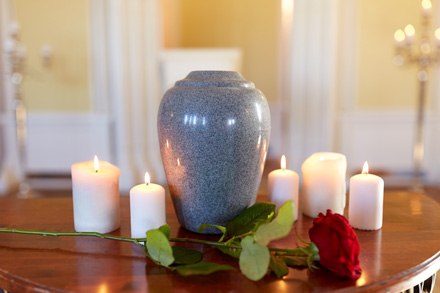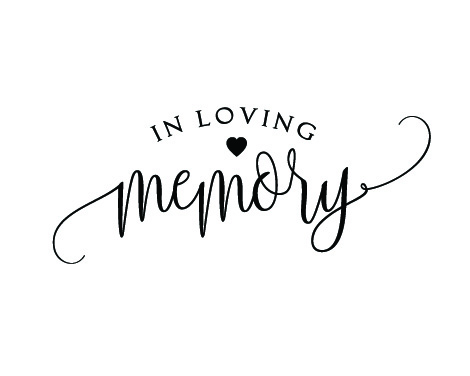We plan for our marriage, the birth of our children, our next home and retirement. Despite the discussions we have for these life events, rarely do we have conversations about how we want to be cared for and remembered at the end of life.
Thinking about end of life decisions can be emotionally difficult. However, initiating this conversation now may make everyone more comfortable later.
Here are some suggestions about how you can respectfully encourage those you care for to verbalize their desires and plan a personalized, meaningful goodbye:

Begin the conversation with a statement that demonstrates that you care about your loved ones’ interests and the wellbeing of the family. “I know this may be an uncomfortable topic, but would you be open to talking about your service and some of the ways you wish to be remembered? When the time comes, I want to know that we are carrying out a ceremony that you want rather than stressing with one another over the details.”
Another option is to start informally asking your loved ones about some of their favorite traditions and how your family will continue those traditions for generations to come before finding a natural transition to the memorial service. Your loved ones may resist, saying “Don’t make a fuss. I don’t want a ceremony. Just bury me and be done with it.” It is best to gently remind them the purpose of the funeral service – that it serves as a time for the living to come together and celebrate a life lived as an essential part of the grieving process. Keeping this larger focus in mind will help guide both of you when deciding on the more delicate details of the ceremony.
After you’ve taken the first step, what is it that you discuss? Your nearest funeral home is your best resource as its staff can clarify the different services and selections available and help you create a meaningful, personalized ceremony based on your loved one’s final wishes and the emotional needs of your family.
If your family is willing, a funeral director can sit down with them to discuss the arrangement process in detail, at no cost. If requested, you can put your family member’s wishes on file with the funeral home and even elect to prepay to secure today’s prices.
For most, planning a funeral is not a one-day affair. Take your time, do your research and create a service that is best for your family, ensuring the ceremony is personalized and within your budget.
What feels like a daunting task may be rewarding for both parties in the end. Take this as your opportunity to have some authentic conversations with your loved one and let them know the legacy they have had in your life.
A service can and should be as unique as the life that is being celebrated. Don’t feel that you have to have a cookie- cutter type of service or that your ideas for a special ceremony are foolish.
You shouldn’t feel pressured or rushed into making a decision and Lifesong’s care team can help you explore your thoughts and feelings in preparation of speaking with a funeral director. Funeral directors are caring, dedicated professionals willing to help you make the arrangements that you want.
In fact, personalizing a memorial service can be very therapeutic – giving you and your family something to concentrate on as you relive memories. It’s also welcomed by family and friends attending a visitation or service because it gets them involved and provides a topic of conversation when they might otherwise not know what to say.
Below are a series of questions to consider when planning a service that celebrates the life of a loved one and creates healing moments for those who will always remember.
What should guests see at the end of life memorial event?
Guests should see favorite pictures of loved ones or favorite places; prized possessions can be incorporated into the event as well.
What should guests hear at the memorial event?
Guests should hear grandchildren laughing or singing. Music can be traditional or popular. Favorite stories can be shared.
What should guests smell at the memorial event?
Guests should smell flowers or incense as well as favorite treats or recipes.Below are a series of questions to consider when planning a service that celebrates the life of a loved one and creates healing moments for those who will always remember.
 Funeral homes provide different services depending on the needs and preferences of the loved one’s family. While many people use the phrases “funeral service” and “memorial service” interchangeably, they are different services.
Funeral homes provide different services depending on the needs and preferences of the loved one’s family. While many people use the phrases “funeral service” and “memorial service” interchangeably, they are different services.
A funeral service is an official ceremony that takes place in the presence of a casketed body. In other words, the body (inside a casket) is present during the ceremony. The casket lid may be open or closed. Funerals are usually held immediately following death and most often held in traditional settings (cemetery, chapel or church) followed by a graveside service.
A memorial service, by definition, is an official ceremony that takes place without a casketed body being present. For example, the ceremony might take place with just an urn containing cremated remains (ashes) serving as the focal point of the ceremony. Alternatively, the focal point could be just a picture of the deceased displayed on an easel. Memorial services may take place weeks or months away. In the past, memorial services also have been less formal than funerals with greater participation by family and friends. This is changing, however, as funerals are becoming less centered on the leadership of one person. Memorial services do not necessarily take place in a funeral home or religious setting. They may be held in the home or another comfortable gathering place.
Other than these distinctions, both a funeral service and a memorial service are similar. Both types of services last approximately 25 minutes and are usually accompanied by a eulogy delivered by a family member or clergy member.
Can I still have a memorial service or funeral with cremation?
Yes, there are many ways that families can say ‘goodbye’ while respecting your loved one’s wishes for cremation.
How long does the cremation process take?
Cremation can take anywhere from 3 to 5 hours.
How do I know the cremated remains are of my loved one?
Funeral homes and crematories are required to follow specific operating procedures and state regulations. Ask your funeral director about the policies and procedures they have in place to ensure the highest level of service.
How do I choose a final resting place for the cremated remains?
The journey does not end with cremation. Following the service and the cremation process, there are several options for choosing a peaceful, final resting place, including:
- Niche – designated area in a church or mausoleum
- Burial – traditional placement in a cemetery
- Scattering – spreading in a particular location
- Home – keeping in your private residence
Does my religion allow cremation?
Today most religions allow cremation. Contact your funeral director or spiritual advisor to discuss your religion’s view on cremation.
 One of the most challenging situations parents ever face is telling their children that a loved one has died. We are afraid children won’t understand death, or that they’ll be crushed emotionally. Most likely, we have no idea when to tell them or what to say.
One of the most challenging situations parents ever face is telling their children that a loved one has died. We are afraid children won’t understand death, or that they’ll be crushed emotionally. Most likely, we have no idea when to tell them or what to say.
Children understand more than we think. If someone close to your child has died, you shouldn’t try to avoid telling them. Children can and do handle death well – often better than the adults around them. Like adults, children need to come to terms with death and the grief that accompanies it.
How should I explain death to my children?
Death can be explained to children the same way we explain other important milestones – offering the facts in a simple, honest, straightforward, non-threatening, caring way.
- Be honest and keep it simple. Children know when adults are concealing the truth.
- First, find out what the child already knows or thinks they know about death.
- Validate feelings and encourage children to share their thoughts, fears, and observations about what is happening.
- Explain that in the circle of life all living things will die someday and that death causes changes in a living thing.
- Explain what dead means by giving an example. (Grandma died. Her heart stopped beating, and she doesn’t breathe in and out anymore. She doesn’t need to eat or go to the bathroom.)
- Being dead is not the same as sleeping. All your body parts work when you are sleeping. When a person dies, their body has stopped working. The part of Grandma that was alive is gone. All that’s left is her body – like an eggshell without the egg.
- Explain how we might feel when someone dies: sad, mad, or confused – and we may cry sometimes. Don’t hide your feelings. Showing and verbalizing one’s pain gives children an example to follow while holding back implies that feelings are to be suppressed. Let your children know that grief is a family affair.
What are some of the ways people say goodbye?
People gather at a funeral home, church or cemetery to say goodbye to the person who has died. Some people have different ways to say goodbye to the person who has died.
What happens at a funeral home?
You will notice many flowers there. There may be pictures of the person when he or she was alive along with his or her family and friends. There will be people crying because they are sad and it’s OK to cry and it’s OK if you don’t cry too. There will be some people laughing and remembering – this helps us “be OK” and start to feel better. Although death is not funny, we can tell funny stories of happy times we had with the person who has died. And we know they would want us to be happy anyway.
What happens at the cemetery?
A cemetery is a quiet place where people are buried. The casket is put into a hole dug into the ground. This is the grave. Loved ones gather around and say prayers and say goodbye one more time. Later, there will be a special stone at the grave. People will visit the cemetery for many years and say a little prayer and even leave flowers.


